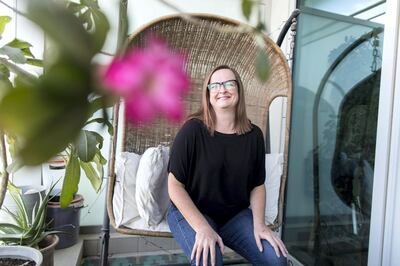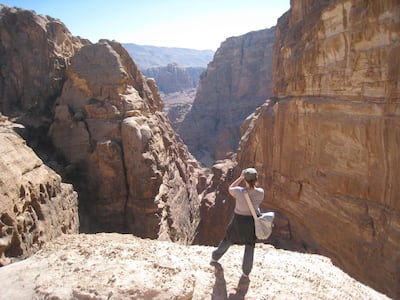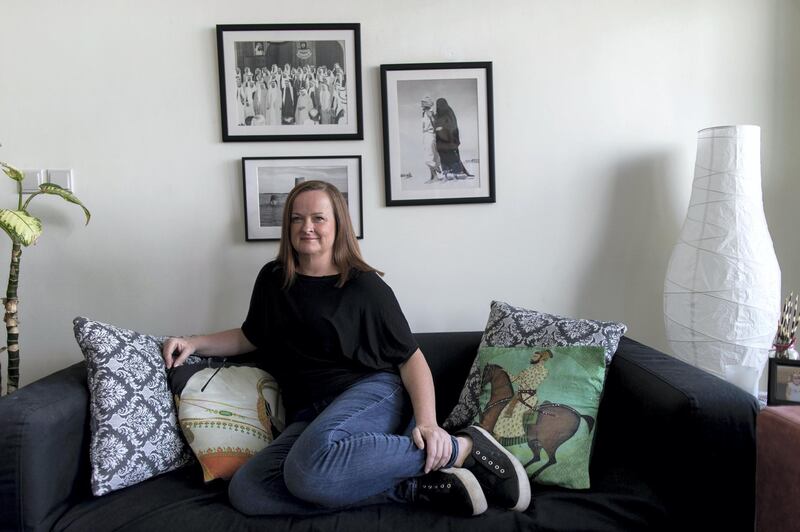Don’t get me wrong, I’ve done pretty well after almost a decade in the UAE. I have savings I could have only dreamed of before arriving, travelled to almost 40 countries, compiled a priceless memory bank of experiences and made the dearest of friends. But oh, how I’ve learned. When I first moved here in 2008, I certainly wish I knew all the things I know now, particularly about how best to handle finances as an expatriate. So if I had a time machine, what would I do differently to ensure my finances were in an even better state than they are now?
Manage my own finances from the outset
I was so financially naive when I moved to the UAE that it makes me cringe. I found a financial adviser through a colleague - who was almost as new to the country as I was - and although I never really trusted him, quickly shifted my savings and profits from selling my condo back in Canada to him, which he then invested in a range of equity and mutual funds.
Right away I lost by exchanging my Canadian money into American dollars, something I hadn’t considered and something the adviser was unbothered about. Much later, I learnt about the steep commission and management fees that can come with the type of financial advisory platform I was investing through. At one point he invested me in a risky recycling fund that resulted in me losing US$15,000, as it is now in liquidation. But for all this I have only myself to blame, because my financial approach was to quickly, and without question, trust a stranger with something to gain and tell myself everything was fine.
As Steve Cronin, an independent financial voice and the founder of Wise, a non-profit organisation designed to help UAE residents invest their wealth and avoid rip-offs, says: "I don't really trust any advisers in the UAE that receive compensation through commission rather than fees. If someone advises you to invest in a savings product and you haven't paid for the advice, you might as well burn your money."
While I don’t regret securing a financial adviser, and I don’t even regret getting this particular adviser – as my investments with the company he works for have done well and I am ahead overall - I should have asked more questions about what he was doing and what it was going to cost me. And because I never really trusted him, I didn’t do nearly as much investing as I might have if I felt more comfortable.
Luckily, there are resources and methods out there now for expatriates who want to manage their own money that did not exist when I set out. I've also become familiar with the work of fellow Canadian Andrew Hallam, who blogs about these issues at AndrewHallam.com and has written several books on the subject of expatriate finances including his most latest tome, Millionaire Expat: How to Build Wealth Living Overseas, published last month.
And so, better late than never, I’ve begun stepping up to my own financial life. I’m with another adviser at the same company, but have left only a fraction of my money there in two high-performing funds, at much lower fees. I am looking to buy a new property and have invested with another financial advisory company that charges less than one per cent (and has much better reputation in the UAE than the first) and opened my own online trading account.
Mr Cronin backs up my new “empowerment” approach to personal finance.
“If you are living abroad for a few years then it is actually fairly easy to learn how to invest by yourself,” he says. “You just have to invest in a couple of ETFs in stocks and bonds every quarter via an offshore broker such as Internaxx or Saxo Bank.”
I’m still figuring all this out, and will be for the rest of my life, but it sure beats the old combination of unease, anger, inertia and helplessness that I had when someone else with other interests was in charge of my money. Because there is no one on earth who cares about my financial well-being more than I do.
_______
Read more:
[ Finance guru Andrew Hallam’s new guide for expats wanting to become wealthy ]
Seven in ten UAE residents unsure how to achieve their financial goals
20 tips to get your finances back on track in the UAE
Why saving for something fun is good for your financial health
_______
Buy a new car rather than secondhand
I’ve always bought used cars, considering it more financially responsible. So when I decided to buy a car four years ago, I immediately settled on a gorgeous 2008 Volvo C70 on Dubizzle. That’s when I found out that although driving a convertible in the sunny UAE is a lot of fun, owning a used European car here is not. The repairs are frequent, expensive and can take up to two weeks, as there is always a part that has to come from Sweden. That meant several times I had to pay even more to rent a car in the interim.
I paid Dh45,000 for the car and spent about Dh30,000 fixing it over the years. I sold it for Dh10,000 to Sellanycar.com and am now renting a Nissan Sunny monthly, for about Dh1,600. If I had to do it again I’d buy new and save myself tens of thousands of dirhams and lots of hassle.
Take advantage of my social media following
One of the first things I did when I arrived in 2008 was set up my blog, A Canadian in Abu Dhabi. Looking back, I blew a pretty big opportunity, because right away I attracted a sizeable following, mentions in international media, awards and advertisers. It just never occurred to me back then that it was possible to make a lot of money or become an influencer out of something I simply loved doing.
Where was Chris Guillebeau, author of the new book Side Hustle: From Idea to Income in 27 Days, back then?
“One of the first things I teach people in the Side Hustle School workshops is ‘the power of observation’,” he recently told Forbes.com. “Learning to spot potential opportunities is one of the most valuable skills you can acquire.”
It’s hard to know how much I could have made - influencers make varied amounts on sponsored posts - but certainly several hundred extra dollars a month if not more. I also missed an opportunity to build a platform that could have translated into bigger projects, even a book deal.

Stay away from the mall
I wish I had learned earlier not to distract myself by spending money when I was sad, lonely, homesick or feeling any other negative emotion.
Dr Saliha Afridi, managing partner at Lighthouse Arabia in Dubai, sees a lot of this behaviour in her expatriate patients. Not only are people earning more, they source out their home chores and have more time on their hands. So whatever void they are feeling – and seeking to fill the easy way, by shopping, socialising and eating out – can be even larger.
“Pleasure is only one component of happiness,” Dr Afridi explains. “Having a life where you are doing what you love, having meaningful attachments, and being connected to something bigger than you – living your life’s purpose – are critical elements that most people are lacking.”
My life has changed dramatically over the last 18 months, forcing me to do a lot of soul searching and make some big changes. Funnily enough, I have not felt the urge to go near a mall and I have figured out how to socialise only when I truly want to. It turns out living in truth is a lot cheaper, and way more fulfilling. I’d recommend it - I’m saving at least Dh2,500 a month this way.
Keep it simple when it comes to property
As Mr Cronin advises: “For peace of mind, it is almost always better to invest in property in your home country unless you have lots of spare cash that you can afford to lose.”
Not wanting to be too exposed to the markets after the crash, in 2009 I bought an investment property in Kuala Lumpur. The company was respected and the deal looked great: discount on buying off-plan, rent that would cover the mortgage, forecasted appreciation due to location and scheduled infrastructure and amenities to boost property value. In retrospect, I was greedy and reckless.
The value of the property never reached the developer’s estimate; the rent only covers half of the mortgage, the property management firm charges obscene fees, the interest rate on my mortgage is too high and I’ve been trying to sell it for more than a year with no success. Financially I can float the property, something I took into account when I set out, so I have decided to hang in there until I can make a visit and renegotiate with the bank, find another realtor and property manager, or come up with something more creative.
From that experience though, I decided I will only buy property in Canada or a country where I can see retiring or deeply understand. Things fared much better when I did just that in 2012, purchasing a condo in Florida at the bottom of the mortgage crisis for $50,000, renting it out for $750 a month for four years and selling it last year for $95,000.
What I did right
When it comes to financial advisers, Steve Cronin’s top tip might just be this: “My advice is never, never invest in a 10-year or more savings plan. 99.9 per cent of the time it is a terrible idea, expensive and inflexible. There is a reason why these plans are banned in most Western countries. If you get into the discipline of saving and investing monthly or quarterly yourself, you will make so much money and be able to take it out whenever you want.”
While I can beat myself up all I want about not saving more, I am super-proud that for almost a decade I resisted continual attempts by my financial advisers to lock me in to a 10 to 25-year monthly savings plan that I instinctively knew was wrong for me.
It wasn’t easy. Once, after yet another refusal, my first adviser laughed, shook his head and told me I was the only one of his clients holding out. One attempt to change advisers went no better. She ended up drawing a steep mountain, adding a sad-looking stick figure barely clinging to the side that was me if I didn’t sign up for her long-term plan now. I drove away from that meeting in tears, feeling ashamed I just couldn’t do what everyone else seemed to be doing.
Recent coverage in The National has exposed these expensive, fixed-term plans for the bad deal they really are, so I have felt vindicated.
The UAE Insurance Authority (IA) and the Central Bank of the UAE are now pushing to clean up how savings and investment schemes are sold in the Emirates.
In 2016, the IA said it had “noticed an alarming amount of complaints” from policyholders who had seen their gains swallowed by high fees on insurance backed schemes.
Both bodies have since announced plans to overhaul how the products, distributed to customers via financial advisory firms, are sold to investors.
Although I could have done a lot more with my money in my time here, I could also have done a lot worse. The important thing is that from now on, I will do better.







